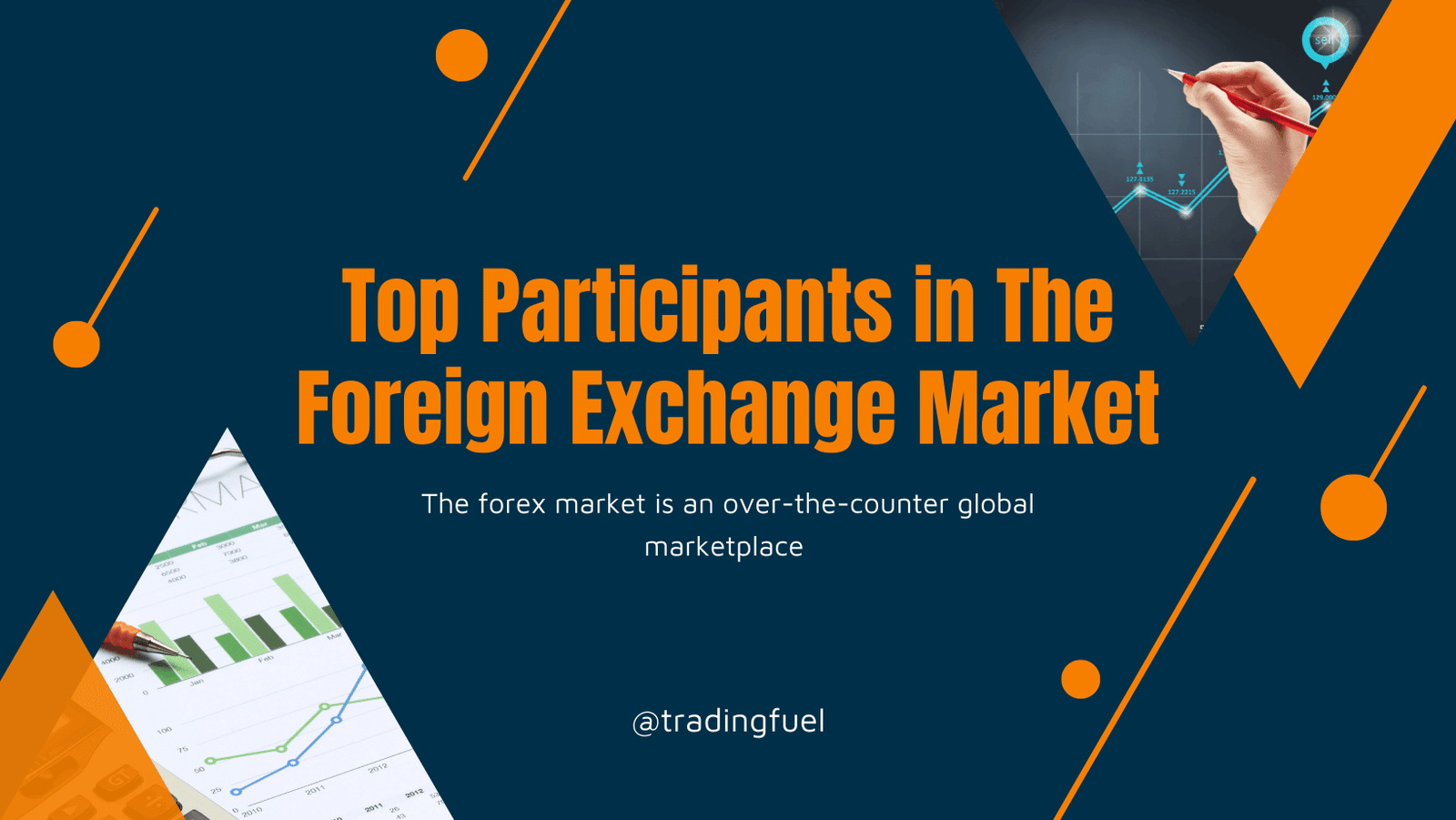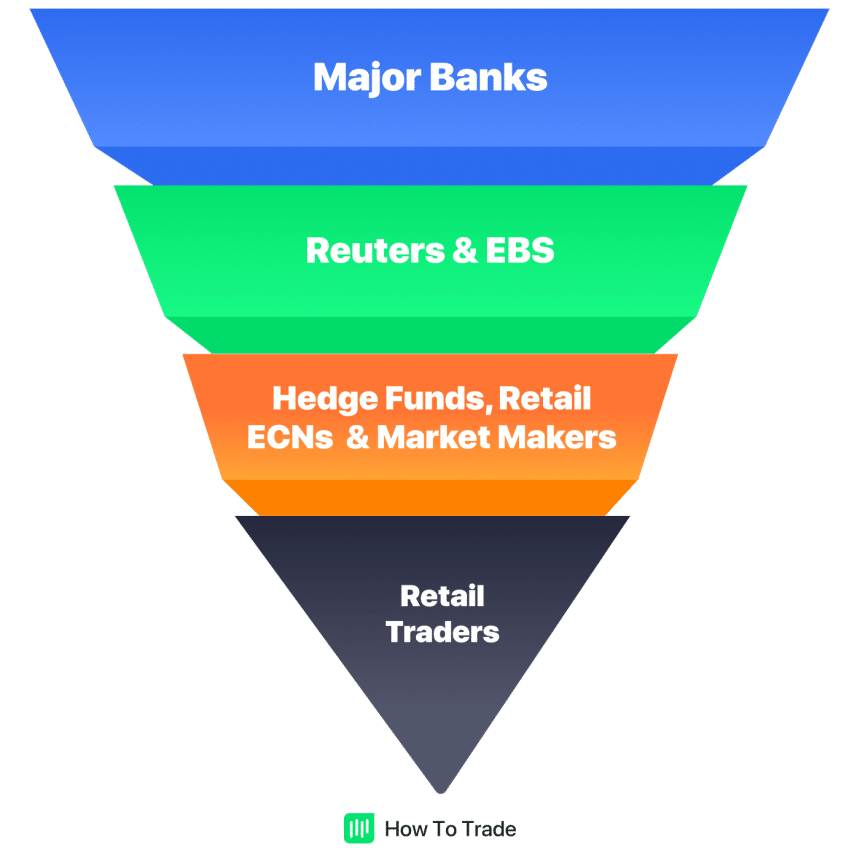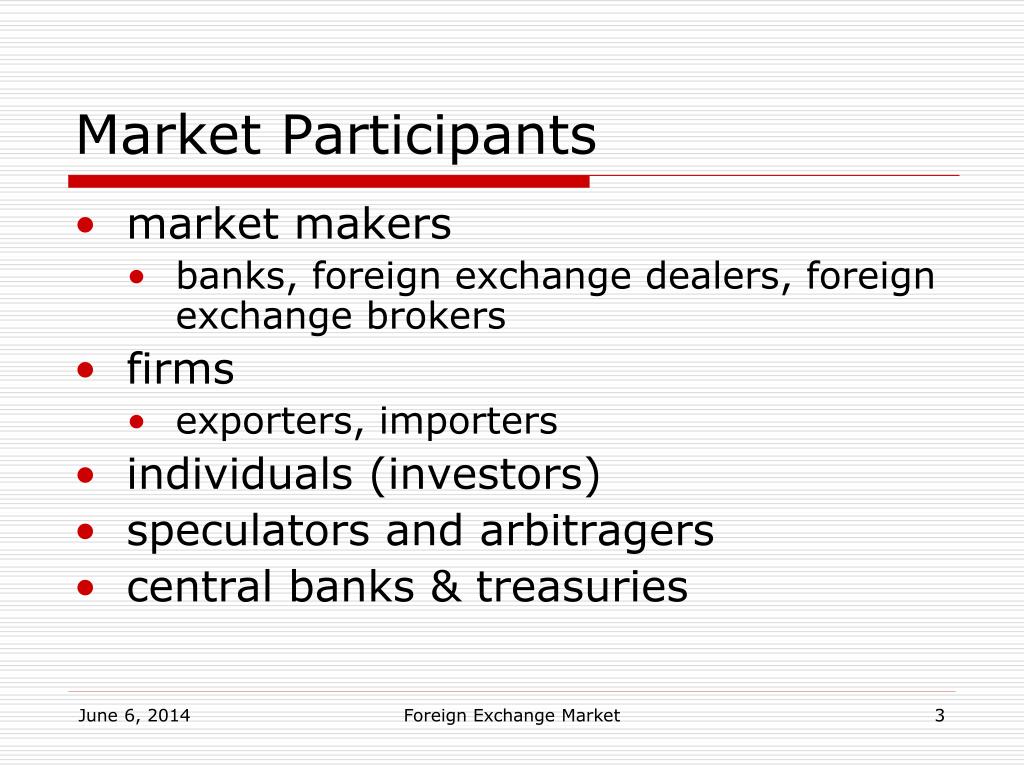Role of participants in foreign exchange market - In the dynamic world of finance, the foreign exchange market plays a pivotal role, and at its heart lie the diverse participants who shape its intricate tapestry. From commercial banks to multinational corporations and individual investors, each player contributes to the market's ebb and flow, influencing exchange rates and global economic trends.
Delving into the complexities of this vibrant marketplace, we will explore the multifaceted roles of these participants, unraveling their strategies, motivations, and impact on the global financial landscape.
Role of Commercial Banks
 Commercial banks play a pivotal role in the foreign exchange market, facilitating currency trading and other foreign exchange transactions for individuals, businesses, and institutions.
Commercial banks play a pivotal role in the foreign exchange market, facilitating currency trading and other foreign exchange transactions for individuals, businesses, and institutions. - Currency Trading: Commercial banks act as market makers, providing liquidity in the foreign exchange market by buying and selling currencies. They facilitate currency trading for various purposes, including international trade, investment, and hedging against exchange rate fluctuations.
- Foreign Exchange Transactions: Commercial banks handle a wide range of foreign exchange transactions, such as currency conversion, wire transfers, and issuing letters of credit. They provide services to individuals, businesses, and organizations engaged in cross-border transactions.
Role of Central Banks

Central banks play a crucial role in managing foreign exchange reserves and influencing exchange rates and monetary policy.
Further details about foreign exchange market in international business is accessible to provide you additional insights.
Managing Foreign Exchange Reserves
Central banks hold foreign exchange reserves to support their currencies, facilitate international trade, and maintain financial stability. They intervene in the foreign exchange market by buying or selling foreign currencies to influence the value of their domestic currency.
Influence on Exchange Rates
Central banks can influence exchange rates through their foreign exchange reserves management and monetary policy. By buying or selling foreign currencies, they can affect the supply and demand of currencies, leading to changes in their values.
Influence on Monetary Policy
Central banks' monetary policy decisions can also impact exchange rates. For example, raising interest rates can make a currency more attractive to foreign investors, leading to an appreciation in its value.
When investigating detailed guidance, check out foreign exchange market ap macro now.
Role of Multinational Corporations
Multinational corporations (MNCs) play a significant role in the foreign exchange market due to their global operations and the need to conduct transactions in different currencies. MNCs require foreign exchange to facilitate international trade, investments, and operations. They purchase foreign currencies to pay for imports, establish subsidiaries, and make acquisitions abroad. Conversely, they sell foreign currencies when exporting goods or services, receiving dividends from foreign subsidiaries, or repatriating profits.Impact on Exchange Rates, Role of participants in foreign exchange market
The foreign exchange transactions of MNCs can impact exchange rates. When an MNC purchases a foreign currency, it increases demand for that currency, leading to an appreciation in its value. Conversely, when an MNC sells a foreign currency, it increases supply, leading to a depreciation in its value. The size and frequency of MNC transactions can have a substantial impact on exchange rates, especially in emerging markets where the foreign exchange market is less developed and more susceptible to fluctuations.Role of Brokers and Dealers: Role Of Participants In Foreign Exchange Market

Brokers and dealers play a crucial role in the foreign exchange market by facilitating transactions between buyers and sellers.
Brokers act as intermediaries, connecting buyers and sellers who may not have direct access to the market. They receive orders from clients and match them with counterparties, earning a commission for each transaction. Brokers do not hold inventory of currencies and do not take positions in the market.
Dealers
Dealers, on the other hand, are market makers who hold inventories of currencies and trade directly with clients. They provide liquidity to the market by quoting bid and ask prices, and they profit from the spread between the two prices.
Brokers and dealers together ensure the smooth functioning of the foreign exchange market by providing liquidity, facilitating transactions, and reducing transaction costs.
Role of Individual Investors
Individual investors play a significant role in the foreign exchange market, contributing to its liquidity and volatility. They participate in the market primarily for speculative purposes, seeking to profit from currency fluctuations.
Discover how foreign exchange market graph ap econ has transformed methods in RELATED FIELD.
The involvement of individual investors in forex trading is driven by several factors, including the allure of high leverage, the potential for significant returns, and the ease of access to online trading platforms. However, retail forex trading also carries substantial risks, including the possibility of losing more money than initially invested.
Risks Associated with Retail Forex Trading
- High Leverage: Forex trading often involves the use of leverage, which allows traders to control a larger position with a smaller amount of capital. While leverage can amplify profits, it can also magnify losses.
- Market Volatility: The foreign exchange market is highly volatile, with currency values fluctuating rapidly. This volatility can lead to substantial losses for inexperienced traders.
- Lack of Regulation: Retail forex trading is not as heavily regulated as other financial markets, which can increase the risk of fraud and manipulation.
- Emotional Trading: Individual investors may make trading decisions based on emotions rather than rational analysis, leading to poor outcomes.
Role of Hedge Funds
Hedge funds are actively managed investment funds that use a wide range of strategies to generate capital gains for their investors. In the foreign exchange market, hedge funds play a significant role as major participants, contributing to liquidity and price discovery.Strategies and Impact
Hedge funds employ diverse strategies in the forex market, including:- Carry Trade: Borrowing in low-interest currencies and investing in higher-yielding currencies to profit from interest rate differentials.
- Currency Arbitrage: Exploiting price discrepancies between different currency pairs traded on different exchanges.
- Technical Analysis: Using historical price data to identify trading opportunities based on patterns and trends.
Last Recap
As we conclude our exploration of the foreign exchange market, it becomes evident that the interplay between its diverse participants is a symphony of interconnected actions and reactions. Their decisions, strategies, and risk appetites collectively shape the market's dynamics, influencing exchange rates, economic growth, and global financial stability.
Understanding the roles and motivations of these participants empowers us to navigate the complexities of the foreign exchange market, make informed decisions, and appreciate the intricate web that connects the world's economies.
